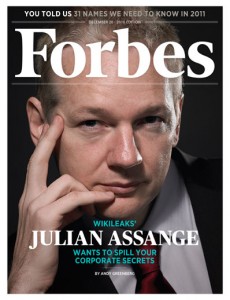Related Research Articles

Forbes is an American business magazine founded by B.C. Forbes in 1917 and owned by Hong Kong-based investment group Integrated Whale Media Investments since 2014. Its chairperson and editor-in-chief is Steve Forbes, and its CEO is Mike Federle. It is based in Jersey City, New Jersey. Competitors in the national business magazine category include Fortune and Bloomberg Businessweek.

Men's Health (MH), published by Hearst, is the world's largest men's magazine brand, with 35 editions in 59 countries. It is also the best-selling men's magazine on U.S. newsstands.
Viral marketing is a business strategy that uses existing social networks to promote a product mainly on various social media platforms. Its name refers to how consumers spread information about a product with other people, much in the same way that a virus spreads from one person to another. It can be delivered by word of mouth, or enhanced by the network effects of the Internet and mobile networks.

ZDNET is a business technology news website owned and operated by Red Ventures. The brand was founded on April 1, 1991, as a general interest technology portal from Ziff Davis and evolved into an enterprise IT–focused online publication.
Online advertising, also known as online marketing, Internet advertising, digital advertising or web advertising, is a form of marketing and advertising that uses the Internet to promote products and services to audiences and platform users. Online advertising includes email marketing, search engine marketing (SEM), social media marketing, many types of display advertising, and mobile advertising. Advertisements are increasingly being delivered via automated software systems operating across multiple websites, media services and platforms, known as programmatic advertising.

Ars Technica is a website covering news and opinions in technology, science, politics, and society, created by Ken Fisher and Jon Stokes in 1998. It publishes news, reviews, and guides on issues such as computer hardware and software, science, technology policy, and video games.
Business.com is a digital media company and B2B web destination which offers various performance marketing advertising, including lead generation products on a pay per lead and pay per click basis, directory listings, and display advertising. The site covers business industry news and trends for growth companies and the B2B community to stay up-to-date, and hosted more than 15,000 pieces of content as of November 2014. Business.com operates as a subsidiary of the Purch Group since being acquired in 2016.
FindLaw is a business of Thomson Reuters that provides online legal information in the form of state laws, case law and codes, legal blogs and articles, a lawyer directory, DIY legal services and products, and other legal resources. The company also provides online marketing services for law firms. FindLaw was created by Stacy Stern, Martin Roscheisen, and Tim Stanley in 1995, and was acquired by Thomson West in 2001.

Adweek is a weekly American advertising trade publication that was first published in 1979. Adweek covers marketing, creativity, client–agency relationships and the media, technology and platforms which support the global marketing ecosystem. During this time, it has covered various shifts in technology, including cable television, the shift away from commission-based agency fees, and the Internet.

Complex Networks is an American media and entertainment company for youth culture, based in New York City. It was founded as a bi-monthly magazine, Complex, by fashion designer Marc (Ecko) Milecofsky. Complex Networks reports on popular and emerging trends in style, sneakers, food, music, sports and pop culture. Complex Networks reached over 90 million unique users per month in 2013 across its owned and operated and partner sites, socials and YouTube channels. The print magazine ceased publication with the December 2016/January 2017 issue. Complex currently has 6.02 million subscribers and 1.8 billion total views on YouTube. As of 2019, the company's yearly revenue was estimated to be US$200 million, 15% of which came from commerce.
Penton was an information services and marketing company. The company's three largest revenue streams came from events, digital and marketing services. Although Penton had a long history as a trade publisher, in 2015 it reported that 35 percent of its EBITDA derived from digital products, 54 percent from events, and 11 percent from print. The main industry segments served by Penton include agriculture, transportation, natural products/food, infrastructure, and design and manufacturing.

Digital marketing is the component of marketing that uses the Internet and online-based digital technologies such as desktop computers, mobile phones, and other digital media and platforms to promote products and services. Its development during the 1990s and 2000s changed the way brands and businesses use technology for marketing. As digital platforms became increasingly incorporated into marketing plans and everyday life, and as people increasingly used digital devices instead of visiting physical shops, digital marketing campaigns have become prevalent, employing combinations of search engine optimization (SEO), search engine marketing (SEM), content marketing, influencer marketing, content automation, campaign marketing, data-driven marketing, e-commerce marketing, social media marketing, social media optimization, e-mail direct marketing, display advertising, e-books, and optical disks and games have become commonplace. Digital marketing extends to non-Internet channels that provide digital media, such as television, mobile phones, callbacks, and on-hold mobile ringtones. The extension to non-Internet channels differentiates digital marketing from online marketing.

Content marketing is a form of marketing focused on creating, publishing, and distributing content for a targeted audience online. It is often used by businesses in order to achieve the following goals: attract attention and generate leads, expand their customer base, generate or increase online sales, increase brand awareness or credibility, and engage an online community of users. Content marketing attracts new customers by creating and sharing valuable free content as well as by helping companies create sustainable brand loyalty, providing valuable information to consumers, and creating a willingness to purchase products from the company in the future.

A paywall is a method of restricting access to content, with a purchase or a paid subscription, especially news. Beginning in the mid-2010s, newspapers started implementing paywalls on their websites as a way to increase revenue after years of decline in paid print readership and advertising revenue, partly due to the use of ad blockers. In academics, research papers are often subject to a paywall and are available via academic libraries that subscribe.
EDP Sciences is an STM publisher that disseminates scientific information for specialist and more general audiences. EDP produces and publishes international journals, books, conferences, and websites with predominantly scientific and technical content. Originally a joint venture of four French learned societies in science, mathematics, and medicine, the company was acquired by China Science Publishing & Media in 2019.

Leaf Group, formerly Demand Media Inc, is an American content company that operates online brands including eHow, livestrong.com, and marketplace brands Saatchi Art and Society6. The company also provides social media platforms to existing large company websites and distributes content bundled with social media tools to outlets around the web.
Canadian online media is content aimed at a Canadian audience through the medium of the Internet. Presently, online media can be accessed by computers, smart-phones, gaming consoles, Smart TVs, MP3 players, and tablets. The characteristics of Canadian online media are strongly shaped by the Canadian communications industry, even though their statistics and findings are more often than not associated with American research. Large media companies are increasingly on the move to start up online platforms for news and television content. The exponential growth of Canadians' dependency on online content for entertainment and information has been evident in the recent decades. However, it has proven slow for Canadian online media to catch up with the constant increase of American online media. Regardless of medium, entertainment and information hubs are not solely focusing on satisfying the audience they have, but are also heavily expanding their reach to new global audiences.

Everyday Health Group is a digital media company which owns websites and produces content relating to health and wellness for consumers and medical professionals. For consumers, its brands include Everyday Health, Diabetes Daily, Migraine Again, DailyOM, What to Expect, BabyCenter, and Emma’s Diary. Its brands for professionals include Health eCareers, Prime Medical, MedPage Today, and Castle Connolly. Everyday Health Group is a division of the Ziff Davis Media and internet conglomerate.
Native advertising, also called sponsored content, partner content, and branded journalism, is a type of paid advertising that appears in the style and format of the content near the advertisement's placement. It manifests as a post, image, video, article or editorial piece of content. In some cases it functions like an advertorial. The word native refers to this coherence of the content with the other media that appear on the platform.
Digiday is an online trade magazine for online media founded in 2008 by Nick Friese. It is headquartered in New York City, with offices in London and Tokyo.
References
- ↑ Media Life Magazine - A Profitable, Ad-Supported Content Site, MarketingSherpa, 14 December 2001 (Retrieved 3 August 2010)
- ↑ Avoiding the Fall From Grace: MediaLife dodges horizontal hazards that sank Inside.com by pursuing vertical niche, G. Beato, Online Journalism Review, USC Annenberg, 16 June 2001 (Retrieved 3 August 2010)
- ↑ "Media Life Magazine - A Profitable, Ad-Supported Content Site". Marketing Sherpa. 14 December 2001. Retrieved 22 November 2015.
- ↑ Keith J. Kelly. "Digital trailblazer Media Life Magazine is closing down". New York Post. Retrieved 2 April 2017.